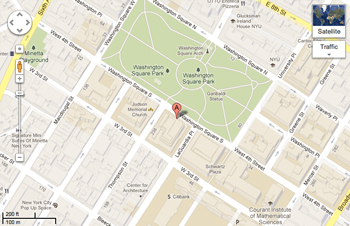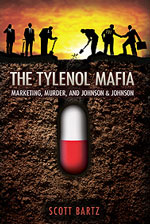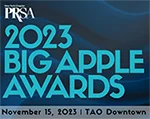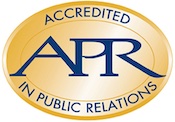PR Society of America’s history of unethical, undemocratic, anti-New York, anti-press and anti-information policies, practices and individual acts demands that its leaders not be allowed to hit on some 300 students at the Career Forum tomorrow at the school’s Kimmel Center absent monitoring by the press. (A list of 20 such abuses is at the end of this blog).
The Center, more properly called the "Helen & Martin Kimmel Center for University Life and the Global Center for Academic and Spiritual Life," was funded by real estate magnate Martin Kimmel, a Long Island native who started in real estate there but struck it rich building houses in Florida and buying properties. His 1,900 holdings included 1,100 strip shopping centers.
 Kimmel Center is the "student union" of NYU where clubs meet and have offices, hold rehearsals, etc. It is no place for deception and spin.
Kimmel Center is the "student union" of NYU where clubs meet and have offices, hold rehearsals, etc. It is no place for deception and spin.
As currently positioned, the main PR lesson of the Career Forum, hosted by PRSA/NY and PRSSA/NYU, is that the press is something to be avoided.
However, despite the best efforts of Society leaders, the press will not be avoided tomorrow. The sidewalk in front of Kimmel is public and this reporter and an O’Dwyer staffer will be stationed there the entire day. If others want to join us that will be fine but we are prepared to stand by ourselves and hold up not only O’Dwyer directories but directories and books of other publishers.
Sponsor J&J Ducked Call
One of the sponsors of Career Forum is Johnson & Johnson, where Ernest Knewitz, formerly at Euro RSCG, is VP of global media relations.
We had e-mailed the 16 other 17 sponsors of Career Day last week but could not do so with J&J because its website provides phones but no e-mails of corporate PR staffers. Nor is there a box in which a question can be placed which companies typically provide.
The only recourse was to call Knewitz on Saturday morning.
When his regular phone did not answer, we reached him on his cellphone. We needed his e-mail address so we could send him our coverage thus far of the Career Forum. He gave it to us. J&J, we told Knewitz, should not be party to any event involving press blockage because it would not jibe with the famed "Credo" of J&J that promises honesty, transparency and fairness.
Knewitz said he couldn’t talk much to us because he was at a Little League game with his son. We could hear children shouting in the background. "Wait till Monday" was his message. Our message was that the media work 24/7 and many reporters work all weekend to have copy ready for Monday a.m. He should have called us back after the game.
J&J Did Same Thing in 1982
"Wait till Monday" was just about what J&J had told the world in 1982 when the murders of seven Chicago-area residents via poisoned Tylenols was discovered.
Victims of the death pills started turning up on Sept. 30 and Oct. 1, 1982 (Thursday and Friday).
Police and press dived into the situation, police roaming the suburbs with bullhorns telling people to throw away any Tylenols (destroying evidence) while newspaper headlines across the nation screamed warnings about Tylenols.
Mostly silence emanated from J&J, which tried to confine a recall to two lots. Executives led by James Burke decided to pursue the matter Monday.
There was no press conference on the murders, not then and not ever. J&J’s attitude was that this was something that happened to another company. It must have been some madman running from store to store, spiking Tylenol bottles, said J&J spokespeople.
The odds that there were only a few poisoned bottles and that capsules from these few bottles got into the hands of seven people on about the same day or two were astronomically low. Math suggested that there were poisoned bottles in hundreds of stores.
However, with people throwing bottles away and many other bottles sent to J&J, there was a catastrophic loss of evidence. Much evidence was sent to the suspect—J&J, a first in criminology.
J&J maintained its pose of non-involvement by only offering $100,000 for evidence in the crime. It should have offered $20 million.
 Former seven-year employee Scott Bartz blew holes in the J&J pose in The Tylenol Mafia, which notes that new mother Lynn Reiner did not get her pills from a store but from the hospital. No “madman” broke into that dispensary. The acetaminophen in Tylenols often passed through five sets of J&J/supplier hands on the way to stores, Bartz noted.
Former seven-year employee Scott Bartz blew holes in the J&J pose in The Tylenol Mafia, which notes that new mother Lynn Reiner did not get her pills from a store but from the hospital. No “madman” broke into that dispensary. The acetaminophen in Tylenols often passed through five sets of J&J/supplier hands on the way to stores, Bartz noted.
J&J/Tylenol needs to be examined by students because it shows how media flunked this story and continues to flunk it. The New York Times has repeatedly praised J&J’s handling of Tylenol. It ignored the 30th anniversary of the deaths last Sept. 30.
Bartz should speak at the PRSA Career Forum. The Society has a heavy debt in this area because it gave J&J a special Silver Anvil for crisis control in 1983 after it had lost in its category to Hygrade Hot Dogs. The Anvil helped J&J sell its claims that it had nothing to do with the murders and had responded fully to the press.
Society Abuses Listed
Some of the abusive policies and practices of the Society are listed below. It is a group obsessed with what is legal as opposed to what is right and wrong. Legal bills totaled $558,824 in the past eight years. Spending on ethics has virtually disappeared--$1,406 in 2011. No one from the Society’s New York or NYU chapters will come to O’Dwyer offices to view documentation of what is below.
1. Domination of national offices since the 1970s by Accredited (APR) members who comprise 18% of membership.
2. Failure to warn prospective members they will be “second class citizens,” unable to hold national office or serve on the Ethics Board until they become APR.
3. Illegal sale of hundreds of thousands of copies of authors’ articles without their permission from 1976-1994.
4. Blocking media coverage the Assembly in 2011-2012. Members do not know what delegates are in the Assembly, what they say, or how they vote.
5. Bogus 2009 Assembly that passed new bylaws using 56 proxy votes which are anathema in Robert’s Rules (which the Society claims to follow).
6. Moving h.q. to downtown New York, far from the PR community, without gaining approval from the Assembly.
7. Cancelling the printed directory of members as of 2006 without approval of the Assembly. Leaders/staff refuse to discuss providing the directory in PDF form. The Society sells the mailing list to selected buyers.
8. National candidates in 2012 refused to answer questions of members on how they stood on ending the APR rule, allowing press in Assembly, warning new members they won’t have full rights, etc.
9. Theft of an entire day of Jack O’Dwyer’s notes from his open conference bag at the 2003 Assembly when his back was turned. Leaders/staff then refused to supply the audiotape.
10. Assembly delegate screamed obscenities and threats of violence (“beat you to a pulp”) while O’Dwyer was standing in front of the Washington Hilton at the 2010 conference. Incident was witnessed by Society leaders and staff watching behind a lobby window.
11. Guards swarmed O’Dwyer in the lobby of the S.F. Marriott Marquis Oct. 15, 2012 when he talked to someone, forcing him from the lobby and telling him he was only allowed to stand across the street. That was treachery because Society VP-PR Arthur Yann had posted on PR Newser March 14, 2012 that the Society does not boycott O’Dwyer or any press.
12. Society, in enforcing a press boycott, is ignoring the pleas of the National Press Club and New York State Senator Liz Krueger.
13. Society in 2012 conducted "the most useless Assembly ever" in the words of senior members by having 11 leader/staff speeches in the a.m. and breaking up the delegates into small groups for three hours in the p.m. There were no bylaw amendments or resolutions either proposed or passed.
14. Failure to allow reporters to join the Society although virtually every press club in the U.S. allows PR people as members. The similar Int'l Assn. of Business Communicators (14,000 members) allows press as full members.
15. Cancellation of the enforceable Ethics Code in 2000 although $50,000 worth of research into members' views by the Ethics Resource Center found that 90% wanted an enforced Code. ERC also found that half the members are under "extraordinary pressures" to behave unethically.
16. Suppressed results of the $150,000 “PR Credibility” study in 1999 that found Americans place "PR specialist" 43rd on a list of 45 sources of information. No press conference was called, no press release was issued, and the table of 45 was never carried in any Society medium.
17. Society has scheduled the next five national conferences in cities other than New York, the nation’s communications capital. It refuses to identify the cities. As of 2018, there will have been one conference in New York in 25 years.
18. Society enabled the $21 million lawsuit of Dean Rotbart vs. the O'Dwyer Co. in 1994 by refusing to sell the videotape of his speech to the 1993 conference. Society had taped it with two cameras for its video library. The tapes would have shown how accurate O'Dwyer coverage was and eliminated possibility of a lawsuit.
19. Society in 1995, faced with demands for better treatment of PR services at national conferences by the PR Service Council, answered such pleas by cancelling the exhibit hall for the next four years, resulting in the dissolution of the Council.
20. Financial results of Q4/2012 have been withheld although Q3 was reported to the Assembly in October 2012.
Society had a loss of $357,498 for the first three quarters despite a $30 dues increase. Dues are booked as cash in violation of bedrock accounting practice.


 PRSA-NY today announced its five honorary co-chairs for its Big Apple Awards ceremony gala slated for TAO Downtown on Nov. 15.
PRSA-NY today announced its five honorary co-chairs for its Big Apple Awards ceremony gala slated for TAO Downtown on Nov. 15. PRSA-NY president Carmella Glover today issued a "heartfelt apology" on behalf of the chapter for her Oct. 14 message that "caused disappointment and hurt to some of our valued members."
PRSA-NY president Carmella Glover today issued a "heartfelt apology" on behalf of the chapter for her Oct. 14 message that "caused disappointment and hurt to some of our valued members." The leadership of Public Relations Society of America is backing a move to change the current “must-have” APR accreditation to “strongly preferred” as a requirement for a seat on its board of directors.
The leadership of Public Relations Society of America is backing a move to change the current “must-have” APR accreditation to “strongly preferred” as a requirement for a seat on its board of directors. Public Relations Society of American today named Linda Thomas Brooks CEO, succeeding CFO Phil Bonaventura, interim chief since July 2019.
Public Relations Society of American today named Linda Thomas Brooks CEO, succeeding CFO Phil Bonaventura, interim chief since July 2019.


 Have a comment? Send it to
Have a comment? Send it to 
No comments have been submitted for this story yet.